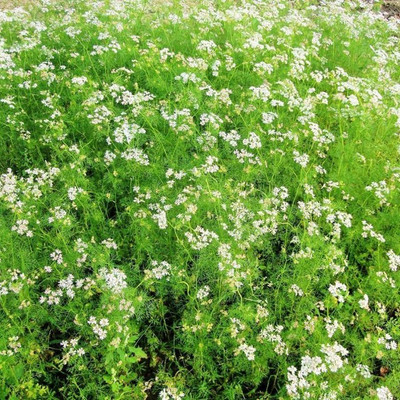ZIXA Coriander Dhaniya Seed(100 per packet)
Quick Overview
Product Price Comparison
What youŌĆÖll need to start growing corianderGrowing coriander requires very little equipment. HereŌĆÖs what youŌĆÖll need:Coriander seedsA suitable pot with drainage holesMultipurpose compostBalanced liquid feedCultivationOutdoors, coriander prefers a cool position and light shade, and very well-drained soil.Coriander is most commonly grown in a pot - either in a little shade on the patio or on a windowsill that doesnŌĆÖt receive direct, burning sunlight in summer and doesnŌĆÖt get too hot.Sowing corianderSow directly in well-prepared moist soil outside at monthly intervals from March to August for a continuous supply of leaves.You can also grow it in 15-30cm (6-12in) pots, sowing a few seeds in each and germinating indoors with gentle warmth. Sow every 6-8 weeks to have a constant supply of fresh leaves throughout the year.Young plants are usually available from garden centers in summer. Plant these out or pot them up into slightly larger pots.How to care for corianderWhen sowing outdoors, thin seedlings or young plants 5-7.5cm (2-3in) apart. If you specifically want to grow it for its seeds, grow at 20-25cm (8-10in) apart.Keep the soil or compost moist as it tends to run to seed if allowed to dry out, but take care not to overwater as too much water can lead to rotting - especially in autumn and winter.Give plants a light liquid feed of a general feed every couple of weeks during late spring and summer. This will help ensure plants go on producing a constant supply of leaves. DonŌĆÖt use high potassium feeds as these will encourage premature flowering.If plants become stressed they will run to seed quickly and leaves start to lose their flavor once flowering begins. This is fine if you want to harvest seeds; otherwise, discard the plants. Harvesting corianderStart harvesting the leaves when they are bright green and young and the plants are 10-15cm (4-6in) tall.You can treat coriander plants as a cut-and-come-again crop. Otherwise, allow them to run to seed and allow the seeds to develop on the plant and harvest them before they are shed.


